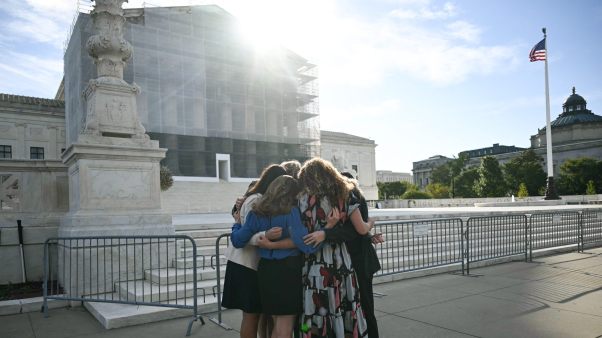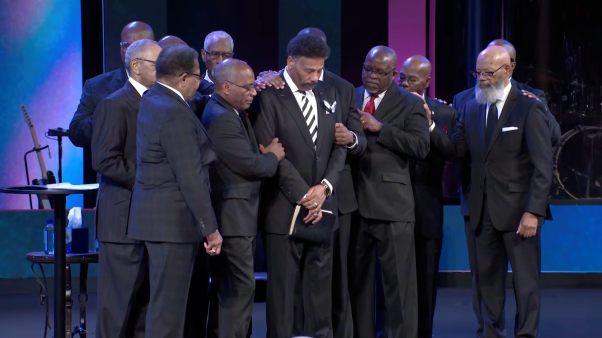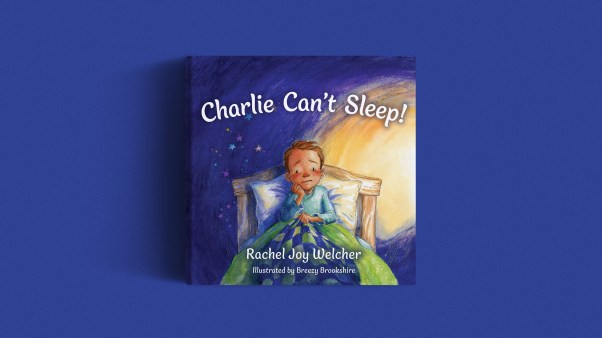Jeffrey Kluger’s recent Time magazine cover story, “What Animals Think,” explores new research about the human-like intelligence of animals. A Bonobo (cousin of the chimpanzee) can learn hundreds of words. Dogs demonstrate social skills by following a pointed finger to its object. Crows bend wires to create fishing hooks. Elephants appear to mourn their dead.
Christians can and should marvel at the surprising points of connection between human and animal. But overemphasizing our commonalities can lead to dangerous territory. The Bible articulates a hierarchical model of creation, with humans “ruling” over the animals (Gen. 1:26). (Of course, much depends upon how we interpret the word rule. More on that later.) Genesis depicts humans as set apart from the rest of creation, for only humans have been created “in God’s image” (Gen. 1:27). In addition to prioritizing humans through the actions of his ministry, Jesus affirms the distinct nature of humans when he addresses human anxiety: “You are worth more than many sparrows” (Matt. 10:31). In other words, God cares for all of creation, but God endows humans with particular worth.
Unfortunately, as Kluger notes, “For many people, the Bible offers the most powerful argument [against animal rights] of all. Human beings were granted ‘dominion over the beasts of the field,’ and there the discussion can more or less stop.” He is right: The Bible has been used to wrongly justify disregarding, even abusing animals. In contrast, a proper understanding of humans “ruling” or “stewarding” role should lead to greater flourishing for human and animal alike.
It’s no surprise that Singer, an atheist, denies the biblical hierarchy. But when the distinction between human and animal is disregarded, the value of life becomes the value of life in general rather than the value of human life in particular. A smart chimpanzee, for instance, might be deemed more valuable than a human in a coma, or a human infant, or a person with a cognitive disability. For Singer, suffering is the ultimate evil and temporal happiness, the ultimate good. If animals suffer, and suffering is bad, then humans should do all they can to prevent such suffering. As a corollary, Singer advocates the possibility of infanticide for very sick or disabled infants. Since suffering is bad, if an infant is suffering (or if that infant’s parent is suffering as a result of the infant), then the infant can be killed (from Singer’s “Taking Life“). An atheistic view of animal rights denies the ontological difference between humans and the rest of the animal kingdom. The animal rights movement has drawn positive attention to the suffering of animals, yet some of its main proponents have also contributed to a devaluing of human life.
C. S. Lewis offers a different perspective. Precisely because animals are not created in the image of God and do not have a soul, Lewis writes, “the infliction of pain upon them [becomes] not easier but harder to justify …. For it means that animals cannot deserve pain, nor profit morally by the discipline of pain, nor be recompensed by happiness in another life for suffering in this” (quoted in “C. S. Lewis’s Theology of Animals,” an article by theologian Andrew Linzey). In other words, suffering in humans is more easily redeemed by God than in animals, which makes it all the more important for humans to see to it that animals do not suffer.
Kluger offers suggestions for an ethical response to the new data: “We could surely stop using [animals] to test cosmetics … We could surely eat less meat … And we could rethink zoos, marine parks and other forms of animal entertainment.” For Kluger, the only reason to do these things is because we can relate to animals and don’t want them to suffer. But Christians have a deeper rationale for caring for creation: In the Genesis account, Adam is given the task of naming the animals (Gen. 2:19-20). This responsibility implies a relationship of care and respect, as of a parent to a child. Fulfilling our caretaking role should foster humility and gratitude in us. And the new research demonstrating the intelligence and emotion of animals should only prompt greater reverence for God’s creation.
Christians will always be charged with “speciesism,” as we believe that humans are the most valued (and most valuable) species, and our species is fundamentally different from others. But evidence should never exist to warrant the charge of Christian indifference to the suffering of animals. While Singer’s ethic leads to the protection of animals at the expense of human flourishing, adhering to God’s instructions in Genesis should lead to mutual flourishing and blessing for animals and humans alike.








